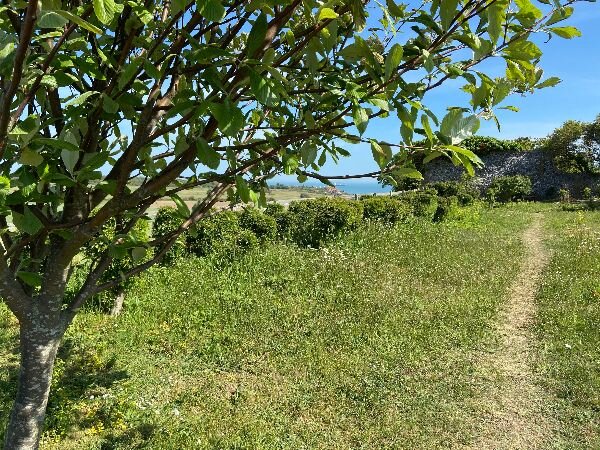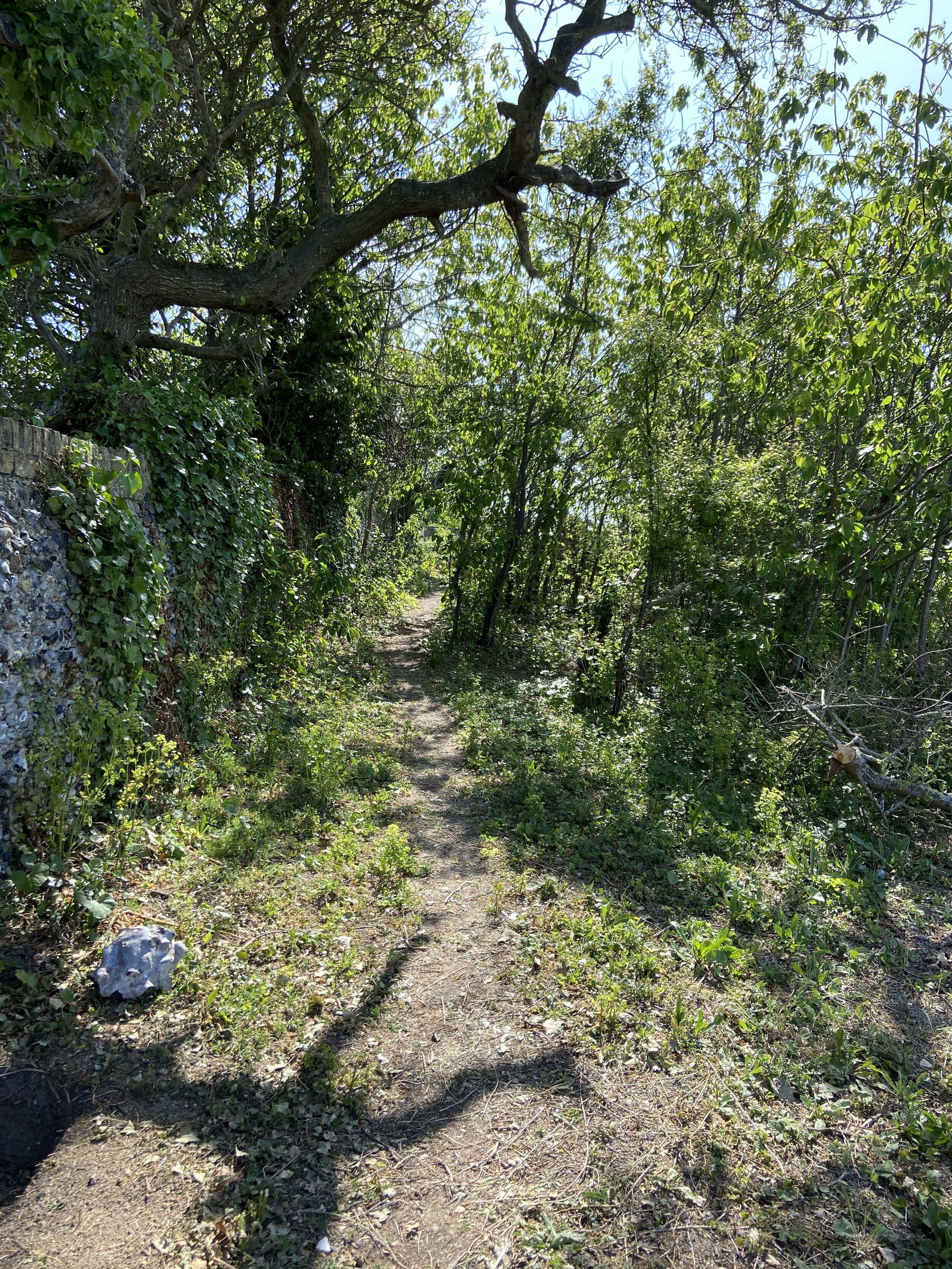Chair's May Blog: Learning to Abide
Learning to Abide
During lockdown, I’ve taken to running laps around my garden. I’m aware that this is not an option for so many people, especially in the more densely populated areas of our cities, which has made me even more appreciative of all that it offers. Almost every morning, whatever the weather I follow the same path. I have worn a little track, past the new fruit trees to the boundary, along the hawthorn hedge, back up, snaking through the trees, past the bonfire site, past the back door and down to the boundary again, and so on. Round and round the garden I go. It is my safe space for exercise.
To distract myself while running I listen to ‘Book at Bedtime’ on BBC sounds. If it's a short run, I just listen to one episode. If the story is good, I’m sometimes surprised how long I keep going. On one occasion the story, Trespass by Rose Tremain, was about a French woman living in the Cevennes. When she felt that her future was threatened, she drew comfort from the solid feel of the earth beneath her feet in her favourite wood.
“She loved to feel, through her rubber boots, the contours of the earth and to remind herself that this place was hers.”
Trespass, Rose Tremain, 2010
The land was hers, but she belonged to the land too and, as the title of the book suggests, someone or something uninvited was attempting to trespass upon ‘this place’.
I have felt that same fear over the last few weeks as the virus trespasses on our lives and our safe spaces. And, as the effects of the pandemic began to impact on work, recreation and so much more, I have taken solace in this small area of safe space in which I am confined.
In the weeks of lockdown, I have seen the fruit trees come to life (all except one). I have watched as the early sunshine coaxed their blossom into view before the fresh green foliage took its place. I’ve watched the daffodils bloom and fade. The daisies and buttercups remind me that the lawn needs mowing and the explosion of growth mocks me as I mistakenly think I am gaining some measure of control over this patch of earth.
I’m no gardener, but I have grown to love this place. I know every weed and bramble that needs dealing with (tomorrow). My vegetable plot is best described as ‘brave’, but most delightful of all, the fruit tree which was dead, has come to life. I have no idea why it is two weeks behind everything else, but I am very pleased with it. Who would have thought that something as simple as staying in my own garden for 7 weeks could have brought such joy?
The pandemic has impacted all our lives. I miss my family and I worry about them. The uncertainties ahead of us all are unsettling, creating impossible situations for decision-making. Long awaited visits and celebrations pass by with promises of reunions, ’when this is over’. Treats are denied and some of the colour threatens to drain from our existence.
But, there are unexpected blessings too: we appreciate the places where we rest and we also appreciate each other more - recognising the strength we draw from our friends and family.
When we are able to gather again, I may still choose to travel a little less or more slowly and take the time to get to know the place where I rest in more detail.
Our current Lectionary readings for the Easter Season provide a particularly apt word for this action - Abide. The word, often translated as ‘stay’ or ‘live’ is richer than both. It carries echoes of faithfulness and relationship. It suggests a depth of encounter which requires more than our fleeting and fractured attention. Listen to how the Gospel of John invites us to this encounter.
‘Abide in me, as I abide in you. Just as the branch cannot bear fruit by itself unless it abides in the vine, neither can you unless you abide in me. I am the vine you are the branches. Those who abide in me and I in them bear much fruit, because apart from me you can do nothing…I have said these things to you so that my joy may be in you, and that your joy may be complete.’
John 15:4—5, 11
Given the assumption that where we are is a safe place, our restricted movement can be seen as an opportunity to practice the ancient art of Abiding. In doing so, we may create the possibility of encountering our circumstances, environment and relationships with a new faithfulness, just as the vinedresser waits for the vine to produce fruit.
Fr Timothy Radcliffe’s article in the Easter edition of the Tablet, suggests that the wisdom of abiding is well known in monastic life,
‘Waiting for the lockdown to be over may be the hardest thing we shall ever do. Already I am longing to break out of isolation and take a walk in the gardens of Oxford. But I hear the voice of Abba Moses, the desert father, reminding me: “Sit in your cell and your cell will teach you everything”.
How Long O Lord?
The Tablet, 11th April 2020
So, whatever relaxations the authorities may grant to us over the next few months, let us not lose the insights gained in our enforced immobility. Let us take this slowly and learn to abide with the God who loves us beyond all fear and promises us a joy which is complete.
Anne Dixon


